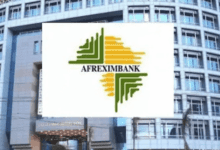Cardoso Optimistic Inflation Rate Will Moderate To 21.4% In 2024

The Governor of the Central Bank of Nigeria (CBN), Mr. Olayemi Cardoso has expressed optimism that the nation’s inflation rate which is currently at 28.92 percent would decline to 21.4 percent within the year.
Mr. Cardoso stated this Tuesday when he appeared before the House of Representatives to address critical concerns related to exchange rates and inflationary pressures in the economy.
He said, “inflationary pressures are expected to decline in 2024 due to the CBN’s inflation-targeting policy, aiming to rein in inflation to 21.4 percent, aided by improved agricultural productivity and easing global supply chain pressures”.
According to him, the CBN’s inflation-targeting framework involved clear communication and collaboration with fiscal authorities to achieve price stability, potentially leading to lowered policy rates, stimulating investment, and creating job opportunities.
The governor told the Honourable Members that the Nigerian foreign exchange market was currently facing increased demand pressures, causing a continuous decline in the value of the naira.
This, he blamed on speculative forex demand, inadequate forex supply due to non-remittance of crude oil earnings to the CBN, increased capital outflows, and excess liquidity from fiscal activities.
He explained that the shift to a market-driven exchange rate was intended to create a stable macroeconomic environment and discourage currency hoarding. However, short-term volatilities are attributed to arbitrage and speculation.
To address exchange rate volatility, he said, a comprehensive strategy has been initiated to enhance liquidity in the FX markets.
“This includes unifying FX market segments, clearing outstanding FX obligations, introducing new operational mechanisms for BDCs, enforcing the Net Open Position limit, and adjusting the remunerable Standing Deposit Facility cap”, he added.
Cardoso said, although the measures would temporarily affect ordinary Nigerians, they are aimed at ensuring a more market-oriented mechanism for exchange rate determination, boost foreign exchange inflows, stabilize the exchange rate, and minimize its pass-through to domestic inflation.
Speaking on the growing number of Nigerian students studying abroad and
the demand side of the exchange rate, he explained that “in the 1980s and 1990s, the need for US Dollars for their living expenses was minimal. However, recent data shows a significant change. According to UNESCO’s Institute of Statistics, the number of Nigerian students abroad increased from less than 15,000 in 1998 to over 71,000 in 2015. By 2018, this figure had reached 96,702 students, as per the World Bank.
“Another report projects the number of Nigerian students studying abroad to exceed 100,000 by 2022. Additionally, the UK’s Higher Education Statistic Agency noted a 64% increase in Nigerian students studying in the country, rising from 13,020 in the 2019/2020 academic session to 21,305 by the 2020/2021 session.
“Given this data, it’s crucial to highlight that between 2010 and 2020, foreign education expenses amounted to a substantial US$28.65 billion, as per the CBN’s publicly available Balance of Payments Statistics.
“Similarly, medical treatment abroad has incurred around US$11.01 billion in costs during the same period. Consequently, over the past decade, foreign exchange demand for education and healthcare has totaled nearly US$40 billion. Notably, this amount surpasses the total current foreign exchange reserves of the CBN. Mitigating a significant portion of this demand could have resulted in a considerably stronger Naira today.
“Personal Travel Allowances have accounted for a total of US$58.7 billion during the same period. Notably, between January and September 2019, the CBN disbursed US$9.01 billion to Nigerians for personal foreign travel.
“Continuing on the topic of the demand for US Dollars, Nigeria’s annual imports, which require dollars for payment, amounted to US$16.65 billion in 1980. By 2014, the annual import expenditure had significantly surged to US$67.05 billion, although it gradually decreased to US$54.71 billion as of last year. Similarly, food imports escalated from US$2.63 billion in 1980 to US$14.84 billion in 2019.
“In 1980, more than 75 percent of the vehicles used in Nigeria were domestically produced by companies like Volkswagen in Lagos, Peugeot in Kaduna, and others. Presently, over 99 percent of the cars driven are imported, necessitating dollar payments. Similarly, in 1980, the majority of the clothing worn was sourced from Nigerian textile mills in Funtua, Asaba, Kano, Lagos, and various other towns and cities. Today, nearly all the clothing worn is made from imported fabrics.
Given the substantial demand for education, healthcare, professional services, personal travel, and similar needs, the exchange rate is bound to face ongoing pressure.
“From the aforementioned points, we can infer that the genuine issue impacting the exchange rate is the simultaneous decrease in the supply of, and increase in the demand for, US Dollars. It also seems that the task of stabilizing the exchange rate, while an official mandate of the CBN, would necessitate efforts beyond the Bank itself and indeed to an attitudinal change of all our citizens.
“We are aware that the twin challenges of inflation and exchange rate depreciation on our economy are daunting, however, they are not insurmountable.
“Monetary policy actions are sometimes inhibited by transmission lags, nonetheless, it is expected that the policy measures implemented by the Bank will permeate the economy in the short- to medium-term.
“Inflation pressures may persist, albeit temporarily, but are expected to moderate significantly by Q4 2024. Exchange rate pressures are also expected to reduce with the smooth functioning of the foreign exchange market”, he assured.






